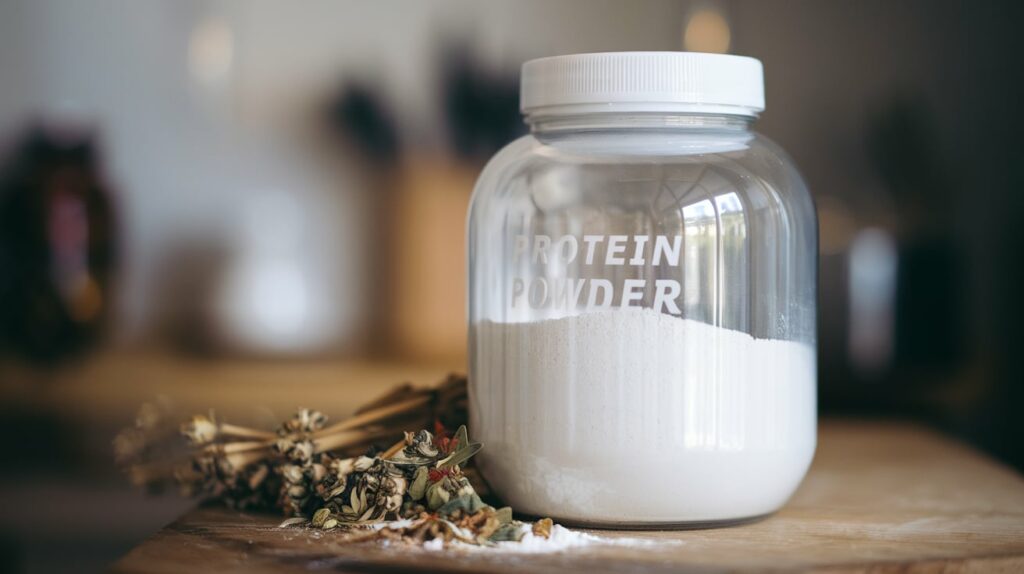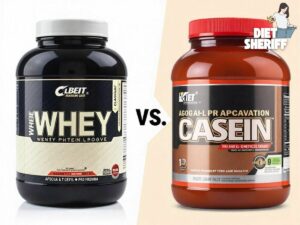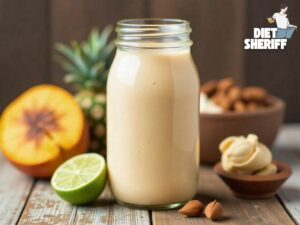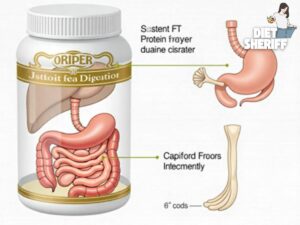Protein shakes are becoming more and morae well-liked as useful and practical weight loss assistance.
The protein shakes are now using widely due to their ingredients that are greatly help to weights loss. The answer of the mostly asked question, “Is a protein shake good for weight loss?” is obviously affirmative,
Despite this, a lot of people are unsure about their suitability and effectiveness for weight loss.
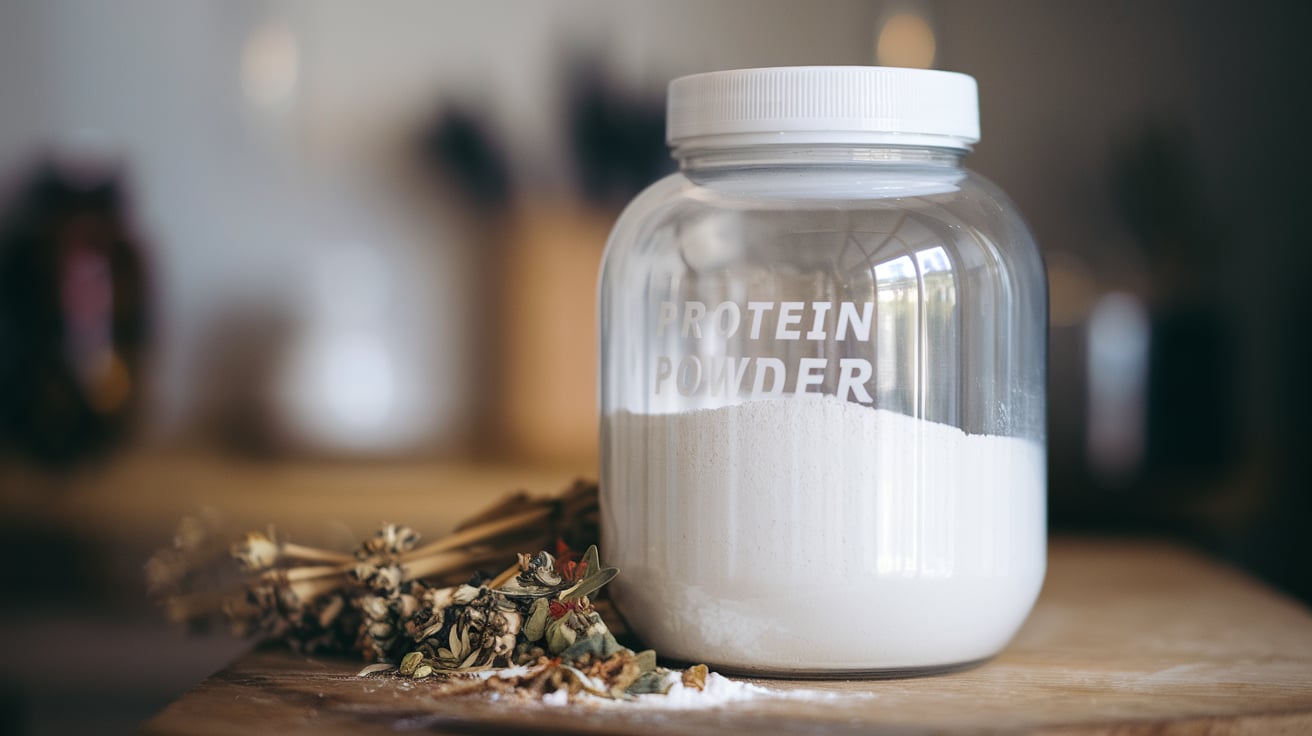
What are the Benefits of Incorporating Protein Shakes into a Weight Loss Regimen?
Protein shakes can help with the physical aspects of managing weight when included in a weight loss program.
Here’s a more detailed look why the answers is “Yes” to the question of “Is a protein shake good for weight loss?”
Related Article: How To Use Protein Powder to Lose Weight?
Decline in Appetite and Satiety
- Protein makes you feel fuller for longer periods of time since it is more satiating than other foods.
- In attempting to lower total calorie consumption, this is essential.
- Shakes rich in protein can help suppress appetite and lessen the desire to snack in between meals.
Preserving Muscle
- Compared to fat, muscle burns more calories at rest since it is a metabolically active tissue.
- You can provide your body the amino acids it needs to sustain and grow muscle by including protein drinks into your diet.
- This ensures the majority of the weight dropped and helps maintain your metabolic rate.
Convenience
- For people who lead hectic lives, preparing healthy meals can be time-consuming.
- Protein shakes are a great choice for a busy day’s meal replacement, because they’re quick and simple to make.
- They’re an excellent choice for folks who are constantly on the road because of their portability as well.
Density of Nutrient
- Protein shakes are a nutrient-dense alternative because many high-quality brands are enriched with important vitamins and minerals.
- This makes sure that you’re still getting the essential nutrients, and this is especially helpful when you’re on a low-calorie diet.
Support for Exercise Performance and Recovery
- Protein smoothies can help with post-exercise muscle repair and recovery, which is crucial for gaining and preserving muscular mass.
- Additionally, they might lessen pain in the muscles and enhance overall performance during exercise.
Portion Control
- Protein shakes usually have portion sizes predetermined, which helps with portion management.
- By doing this, unintentional overeating may be avoided, which is a typical problem while attempting to reduce weight.
Related Article: Are Protein Drinks Good for Weight Loss?
Taste and Variety
- There is an extensive variety of flavors and formulas available for protein shakes.
- This diversity might help you avoid boredom and maintain an interesting diet.
Better Energy Production
- The thermal effect of food of protein is larger than that of fats and carbs.
- In other words, the body expends more energy breaking down and metabolizing protein.
- Protein shakes are a little way to increase your total caloric expenditure and assist in weight reduction.
Regulation of Blood Sugar
- In order to stop cravings and overindulgence, protein can help balance blood sugar levels.
- For those who have problems with insulin sensitivity, this is very helpful.
Enhanced Weight Loss Results
- According to studies, meals high in protein can help people lose weight more successfully than diets low in protein.
- You can make sure that the shake is constantly rich in protein, which will eventually improve your weight reduction efforts.
Balancing Protein Intake for Optimal Results for Weight Loss
Maintaining a balanced protein intake is essential to getting the best weight loss outcomes.
Here are some important suggestions:
- Set Protein Goals:
Depending on your weight and level of exercise, set a daily target for your protein consumption.
0.8 to 1.2 g of protein per kg of body weight should be consumed daily.
Aiming for the higher end of this range might be beneficial if your goal is weight reduction.
- Equally Distribute Protein Intake:
Spread your daily protein intake equally. Make a plan to include a protein source in every meal.
This keeps energy levels consistent, which helps stop overeating.
- Select Quality Sources:
Give priority to foods high in lean protein, such fish, chicken, eggs, milk, lentils, tofu, and tempeh alongside having protein shake.
These sources offer important nutrients in addition to high-quality protein.
Related Article: Hot Protein Drinks: A Sip of Nourishing Warmth
- Include Variety:
Make sure your diet includes a range of sources of protein.
To add variety to your meals and snacks, try experimenting with plant-based protein sources.
- Consider About Timing:
Shakes high in protein should be consumed both before and after exercise to help in muscle repair.
To stimulate muscle protein synthesis, aim for a blend of quickly digested proteins, such as whey protein, right after your workout.
- Monitor Portion Size:
In order to avoid consuming too many calories, pay attention to portion sizes. Make sure you’re ingesting the right portion sizes by using measuring tools.
- Stay Hydrated:
Adequate hydration is necessary for the best possible protein usage. Drink on lots of water, particularly if you’re adding more protein to your diet.
The water facilitates metabolic and digestive processes.
- Adjust Based on Progress:
Regularly assess your progress and modify your protein intake as necessary.
You might need to reevaluate your protein targets if you’re not getting the results you want.
How to Choose the Right Protein Powder for Weight Loss
Picking the best protein powder for losing weight requires giving serious considerations:
- Checking the Protein Content: Find protein powders with no added sugar and a high protein content per serving.
To help you feel full, try to get at least 15-20 grams of protein each dish.
- Consider Calorie Content: It’s essential to pay attention to the protein powder’s total calorie count.
Instead of ingesting too many calories, use protein powders with reasonable calorie content.
- Choose a Low-Carb Option: Think about choosing a protein powder that contains less sugar and carbs.
When achieving your objectives, look for products that are marked as “low-carb” and “keto-friendly”.
- Look for Added Fiber: It is widely known that fiber promotes intestinal health.
Choose protein powders that have extra fiber, such as soluble fiber or prebiotic fibers like inulin. This will ensure that you feel full in between meals.
- Avoid Artificial Ingredients: Pay close attention to the ingredient list and stay clear of if that the powder have added artificial sweeteners. Choose products that are naturally sweetened with fruit or stevia.
- Check for Third Party Testing: Seek for protein powders that have been tested by a third party.
Product certifications from organizations such as NSF International and Informed-Choice can guarantee that the product satisfies demanding requirements.
Explore Also:
Creativehouseblog
Gigasecurehome
Mycleanseplan
- Consider Protein Type and Digestibility: Select a protein powder based on how well your digestive system works.
Whey protein is well-known for its quick absorption, which aids in weight loss.
Related Article: How Can a Woman Lose Weight with Protein Powder?
Is a Protein Shake Good For Weight Loss- FAQs
Do protein shakes help with muscle growth when losing weight?
Yes.
When losing weight, do protein shakes induce hair loss?
If consumed as a part of a balanced diet, they are unlikely to result in hair loss.
Are protein smoothies a safe option for prolonged weight?
Yes.
Can protein shakes reduce a person’s desires for junk food?
Yes.
Can you lose weight by eating protein shakes as a snack?
Yes.

